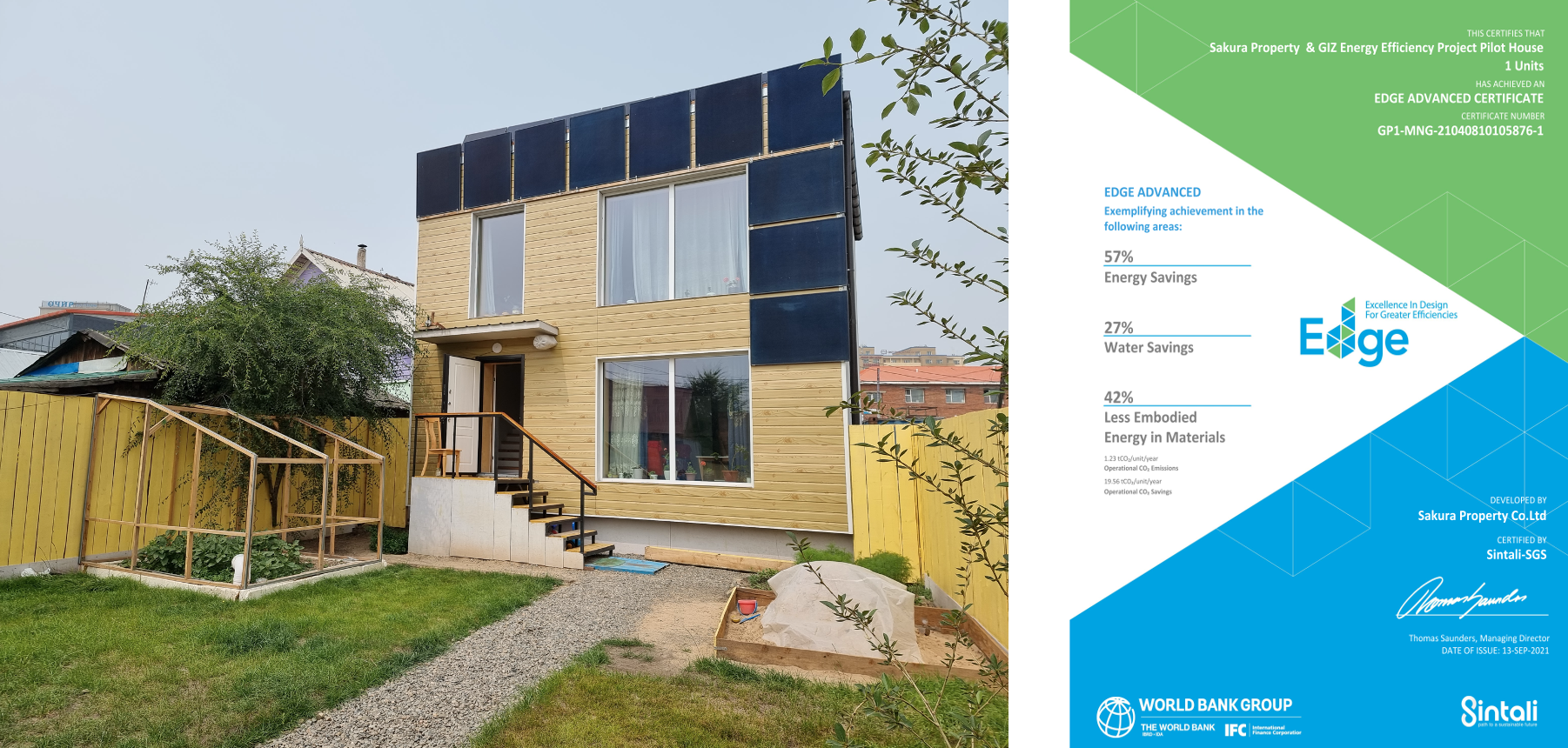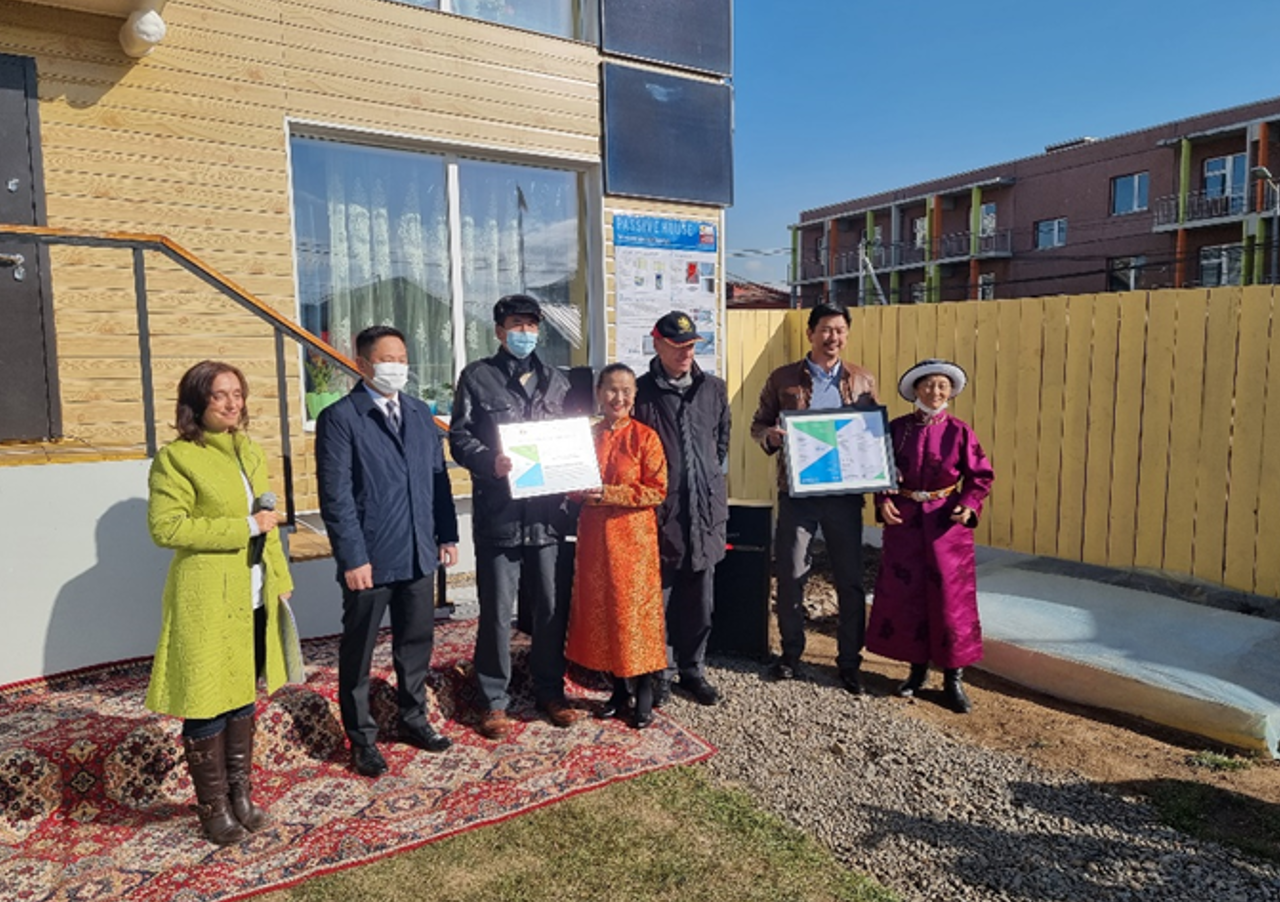
As the augmenting signs of climate change and global warming pose an unprecedented challenge to humanity, many countries around the world, individually and collectively, are embarking on bold commitments to reduce greenhouse gas emissions and implementing numerous projects and programs.
A clear example of this is the commitment of countries to zero greenhouse gas emissions (zero carbon) by 2050. Mongolia has also joined the Paris Climate Agreement, determined its national contributions (NDC) and pledged to reduce its greenhouse gas emissions.
The energy sector, especially the largest consumer of energy, the construction and housing sectors, can play a significant role in reducing greenhouse gas emissions. Therefore, it is very important to make buildings as environmentally friendly and green as possible, and international systems have been already established to evaluate and validate that they are green. One of them is the EDGE (Excellence in Design for Greater Efficiencies) system, introduced by the International Finance Corporation (IFC), a member of the World Bank Group.
In September 2021, an energy-efficient private house built in Mongolia has been audited and certified by the EDGE system. In other words, Mongolia has now its first ever green building officially certified by an internationally recognized certification system.
During the event on October 13, 2021, the EDGE certificate and the badge were awarded to the home owners and construction company. The opening ceremony was attended by Mr. E. Zolboo, the Deputy Minister of Construction and Urban Development, Mr. Jörn Rosenberg, Ambassador of the Republic of Germany in Mongolia, Mr. B. Medree, President of the Mongolian Bankers Association, Mr. Daniel Passon, Country director of GIZ Mongolia and representatives from private sector. In their opening speeches they highly appreciated the significance and impacts of the green certification.

In 2020, Sakura Property LLC built and commissioned this energy-efficient private house in Bayangol district of Ulaanbaatar. This house was built under the sub-project for the promotion of energy efficient housing financing scheme in Ulaanbaatar’s Ger districts implemented in collaboration with the Mongolian Bankers Association (MBA) and Mongolian Sustainable Finance Association (ToC) in frame work of GIZ “Energy efficient building refurbishment in Mongolia” project implemented jointly by German Government, Swiss Development Cooperaton (SDC) and Municipality of Ulaanbaatar City. The house was audited and certified by Sintali-SGS an EDGE accredited company. The GIZ project financed the energy efficiency assessment and the auditing and certification process.
In 2018, a Memorandum of Understanding was signed between the Ministry of Construction and Urban Development, the Ministry of Environment and Tourism, Energy Regulatory Commission and IFC to introduce the EDGE green building certification system in Mongolia. In framework of this MoU numerous trainings have been conducted and baseline data from Mongolian building Norms and Standards have been included in to the EDGE system that allowed the local application of the system. The issuing of this first certificate marks the first step in the actual introduction of the EDGE system in Mongolia. Donor organizations such as ADB have also decided to use this system in their projects and programs in Mongolia.
The EDGE green building certification system, which has been introduced in more than 150 countries around the world, evaluates buildings in three areas: energy consumption, water consumption and building materials used (embodied energy), and at least 20% more efficiency in comparing to values set in national building codes and standards must be demonstrated in those areas.
The EDGE certificate has three categories (energy savings of 20%= energy efficient, 40%= advanced, 100% = “zero” carbon). The first certificate issued to this particular house in Mongolia is an “advanced” certificate due to the 57% energy, 27% water and 42% embodied energy savings.
The certified house is a 70m2 two-story building with a wooden frame structure and due to the electric heating, the house does not emit any smoke in winter and saves 8.4 tons of carbon dioxide CO2 per year. In addition, PV solar panels with a total capacity of 5kW were installed to provide about 55% of electricity consumption.
Innovative “Passive” housing technologies and measures applied in this house helped to reduce the heat energy demand to nearly zero and the remaining small need can be supplied by renewable energy sources. Additional measures such as installation of water-efficient appliances, the avoidance of heavy and energy intensive building materials such as concrete and brick requiring significant amount of energy to be produced (embodied energy), usage of light building structures have finally created basic conditions for the obtaining of the EDGE green building certificate.
The reduction potential of those small houses can do a significant effect also on national and international level. If only 3.000 of the new houses in UB´s Ger areas would be energy efficient, the whole emission reduction obligation of the Mongolian construction sector could be covered. Compared to other measures taken to reduce greenhouse gas emissions, the investment is up to 10 times lower for this measure than implementing them in industrialized countries. Therefore, the partners of the EEP project and their guests during this event considered this first certified house to be one important step towards a cleaner and more energy efficient Mongolia of the future.
